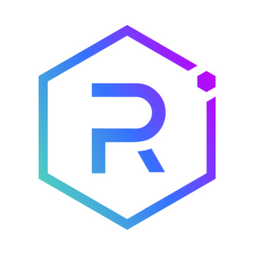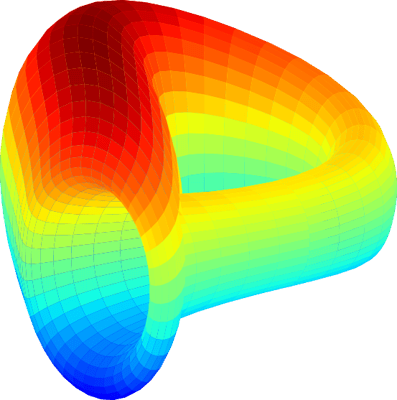Exploring the Integration of AI and Blockchain: The Future of Decentralized Technologies October, 2025
 Written by Nikolas Sargeant
Written by Nikolas Sargeant
| 手数料 | 入金方法 | |||||||||
|---|---|---|---|---|---|---|---|---|---|---|
| 名前 | 仮想通貨 | テイカー | メーカー | 出金 | 電信送金 | クレジット | Trading API | アクティブ開始日 | Offer | |

Raydium
Decentralized Exchanges
|
21 | 0.25% | 0.25% | 0.000000 | 2021 |
|
||||

Curve Finance Exchange
Decentralized Exchanges
|
8 | 0.04% | 0.04% | 0.000079 | 2020 |
|
||||

PancakeSwap
Decentralized Exchanges
|
203 | 0.20% | 0.20% | 0.00041 | 2020 |
|
||||

Uniswap
Decentralized Exchanges
|
390 | 0.30% | 0.30% | 0.000079 | 2018 |
|
||||

SunSwap
Decentralized Exchanges
|
13 | 0.61 | 2020 |
|
||||||
Artificial Intelligence (AI) and blockchain are two groundbreaking technologies reshaping the modern technological landscape. AI, with its ability to simulate human intelligence, drives automation, enhances decision-making, and creates personalized user experiences. Blockchain, on the other hand, offers a decentralized, transparent, and secure ledger system that ensures data integrity and eliminates the need for intermediaries.
The integration of AI and blockchain brings forth transformative possibilities—combining AI’s predictive power with blockchain’s immutability and transparency. This convergence could revolutionize industries by enabling secure, decentralized intelligence and automated decision-making processes.

Currently, the industry is witnessing a burgeoning interest in blending these technologies, driven by the need for robust data management, secure AI model sharing, and enhanced trust mechanisms. This document explores key milestones, technical frameworks, real-world applications, and future trends shaping this integration.
The Evolution of AI and Blockchain Convergence
The parallel development of AI and blockchain technologies over the last few decades has set the stage for their convergence. Blockchain's inception in 2008 introduced a secure, immutable ledger system, while AI’s advancements, including deep learning and neural networks, gained traction around the same time.
Key milestones in their integration include the rise of decentralized AI platforms and tokenized AI models, driven by increasing market demand for secure data handling and automated decision-making. Market forces like the need for data sovereignty and trust in AI outputs fuel this convergence, but challenges such as scalability and regulatory compliance persist. Opportunities, however, abound in sectors like healthcare, finance, and supply chain.
Blockchain’s role in creating immutable records provides an ideal foundation for AI systems that require trustworthy data sources. Meanwhile, AI’s ability to process and analyze vast datasets enhances the capabilities of blockchain-based applications. This symbiotic relationship continues to drive innovation, particularly in areas where transparency and accountability are critical.

Further, as data becomes a critical asset, the convergence of AI and blockchain ensures enhanced data security and privacy, particularly in sectors like healthcare where sensitive information must be handled with care. AI’s predictive and analytical capabilities can streamline processes, while blockchain ensures the integrity and traceability of these actions.
As industries evolve, the integration of AI and blockchain is expected to pave the way for novel solutions that enhance transparency, efficiency, and trust in technology-driven processes. With the alignment of these technologies, a decentralized yet intelligent ecosystem is gradually emerging, promising transformative applications across diverse fields.
Tokenized AI Models: A New Paradigm
Tokenized AI models represent a significant advancement in the intersection of blockchain and AI. By leveraging tokenization, AI models can be securely shared, accessed, and monetized through blockchain networks, enabling a decentralized and transparent ecosystem for AI innovation.

Understanding AI Model Tokenization
Technical Framework: Tokenization involves converting AI models into cryptographic tokens on blockchain platforms. These tokens grant rights to model access, governance, or monetization, promoting secure and transparent utilization. Key elements include:
- Smart contracts: Automate transactions and enforce model usage terms.
- Interoperability: Ensures compatibility between AI models and diverse blockchain protocols.
Tokenization introduces unprecedented flexibility in how AI models are deployed and monetized. Through this framework, developers and businesses can create scalable solutions while maintaining control over intellectual property and usage terms. This approach not only democratizes access to AI but also fosters innovation by allowing smaller developers to participate in the AI economy.
Benefits and Challenges
Benefits:
- Decentralized model sharing fosters broader access.
- Transparent audit trails enhance accountability.
- Monetization through token incentives supports sustainable innovation.
- Encourages collaboration among developers, researchers, and organizations.
Challenges:
- High computational costs limit scalability.
- Interoperability between platforms requires standardization.
- Regulatory ambiguities can hinder widespread adoption.
- Ensuring the authenticity of AI models on decentralized networks can be complex.

Market Potential
The growing demand for ethical AI systems and secure data management positions tokenized AI models as a transformative solution. With increasing awareness around data privacy and AI bias, industries are projected to adopt tokenized AI models at an accelerating pace, with healthcare, finance, and education leading the way.
Tokenized AI models also present a unique opportunity for decentralizing AI governance. By distributing ownership and control through tokens, stakeholders can ensure that AI systems operate transparently and ethically. This aligns with global efforts to regulate AI use and mitigate risks like bias and misuse.
Real-World Applications
- Healthcare: Secure analysis of decentralized patient datasets for predictive diagnostics. Hospitals can share anonymized data across borders without compromising privacy.
- Finance: Fraud detection systems built on decentralized AI. Banks and financial institutions can collaborate without exposing sensitive information.
- Supply Chain: Predictive maintenance leveraging tokenized AI models for real-time analysis. Ensures minimal downtime in manufacturing and logistics.
- Education: Personalized learning platforms enhanced by AI-driven recommendations. These systems adapt to student needs while ensuring data security.
- Energy: Optimizing energy grids and consumption patterns through AI models integrated with blockchain for secure data sharing.

Examples of Leading Projects
- SingularityNET (AGIX): A decentralized AI marketplace built on blockchain that allows AI developers and users to connect, share, and monetize AI services. With a strong focus on transparency and democratization, it aims to build a collaborative AI ecosystem.
- Fetch.ai (FET): A platform for building autonomous economic agents powered by AI and blockchain. Fetch.ai facilitates data exchange and decision-making across decentralized networks.
- Ocean Protocol (OCEAN): A decentralized data exchange protocol that combines AI and blockchain to unlock data’s potential. Ocean enables businesses to share and monetize their data while retaining ownership and privacy.
- Numerai (NMR): A blockchain-based platform for data scientists to create predictive models. Numerai integrates blockchain to ensure secure, transparent transactions while leveraging AI for financial market predictions.
Decentralized Data Marketplaces
Decentralized data marketplaces are pivotal in fostering secure, transparent data exchanges while ensuring data ownership and privacy. By combining blockchain and AI, these marketplaces enable seamless transactions and enhanced trust.
Architecture and Framework
Decentralized data marketplaces employ blockchain for secure data sharing and AI for value extraction.
Key Components:
- Blockchain Ledger: Ensures transparency and immutability.
- Smart Contracts: Automate data exchanges and enforce predefined terms.
- Encryption Protocols: Safeguard data integrity and prevent unauthorized access.

These marketplaces transform how data is exchanged by enabling trustless interactions where participants can transact without relying on intermediaries. The integration of AI ensures that data is used effectively to extract insights and drive value creation.
Security Considerations:
- Advanced encryption techniques protect sensitive data.
- Multi-signature wallets ensure secure transactions.
- AI-based threat detection systems monitor for fraudulent activities.
Governance Models
Decentralized Autonomous Organizations (DAOs) oversee fair marketplace operations, fostering trust and collaboration among participants. DAOs use smart contracts to enforce rules and distribute incentives, ensuring equitable participation and governance. Community voting mechanisms within DAOs further democratize decision-making.
Economic Incentives and Sustainability
Participants in decentralized data marketplaces are incentivized through token-based systems. Data providers earn tokens for sharing high-quality datasets, while consumers use tokens to access data. This closed-loop economy ensures sustainability and encourages continuous participation.

Real-World Applications
- Healthcare: Exchanging anonymized patient data for research purposes. Pharmaceutical companies can access diverse datasets to accelerate drug development.
- Retail: Sharing customer insights for targeted marketing while preserving privacy. Brands gain actionable intelligence without breaching consumer trust.
- Finance: Accessing verified credit data for enhanced lending decisions. Decentralized platforms reduce the risk of fraud and inaccuracies.
- Agriculture: Leveraging decentralized weather and crop data to improve farming techniques. Farmers gain real-time insights for better decision-making.
- Transportation: Improving traffic flow and logistics using AI-analyzed data from blockchain-secured sources.
Examples of Leading Projects
- Ocean Protocol (OCEAN): Facilitates secure, decentralized data sharing with built-in incentives for providers and consumers. It bridges the gap between data ownership and monetization.
- Datum (DAT): Empowers individuals to take control of their personal data by allowing them to securely share and monetize it through a decentralized marketplace.
- Streamr (DATA): A blockchain-powered platform for real-time data sharing. It focuses on decentralized applications where AI can process streaming data effectively.
Decentralized data marketplaces enable industries to unlock the value of their data while preserving privacy and compliance with regulations. By integrating AI, these platforms amplify the utility of data, providing actionable insights that drive innovation and growth. This approach ensures that both data providers and users benefit equitably, fostering a more inclusive digital economy.
Here are some of the most popular DeFi exchanges operating at the time of publishing: Raydium, Uniswap, Curve, PancakeSwap, and SunSwap.

Economic Models and Incentives
Economic models in blockchain-enabled systems rely heavily on tokenomics to ensure participation and sustainability. These models are particularly important in incentivizing stakeholders to contribute and maintain the ecosystem.
Tokenomics and Reward Systems
- Data Providers: Earn tokens for supplying high-quality, verified data.
- Validators: Gain rewards for ensuring the authenticity and accuracy of datasets.
- Consumers: Pay tokens to access valuable datasets or AI models.
- Network Participants: Receive incentives for maintaining marketplace operations.
These incentive structures create a self-sustaining economy, ensuring all participants are aligned towards the system’s long-term success.

Tokens not only act as currency but also as governance tools, enabling participants to vote on platform changes or updates. This democratization ensures transparency and fairness across the ecosystem.
Dynamic tokenomics also provide adaptability to changing market conditions, maintaining stability and encouraging continuous participation. As decentralized systems expand, these economic models will evolve to address scalability and integration challenges, fostering long-term viability.
Conclusion and Future Directions
The integration of AI and blockchain represents a transformative shift in technology, promising enhanced transparency, efficiency, and trust across industries. As these technologies continue to converge, they will unlock new opportunities and address longstanding challenges in data management, decision-making, and innovation.
Looking forward, advancements in AI explainability and blockchain scalability will be critical to realizing the full potential of this integration. Federated learning on blockchain, quantum-resistant cryptography, and decentralized autonomous agents are among the emerging areas poised to redefine the boundaries of what AI and blockchain can achieve together.

Market projections indicate that the blockchain-AI ecosystem is set to grow significantly, with applications in healthcare, finance, education, and beyond. Governments and enterprises alike are investing in research and development to harness the benefits of these technologies while addressing ethical and regulatory considerations.
Ultimately, the success of AI and blockchain integration will depend on collaboration between technologists, policymakers, and industry leaders. By fostering an environment of innovation and inclusivity, we can build a decentralized, intelligent future that empowers individuals and communities worldwide.
| 手数料 | 入金方法 | |||||||||
|---|---|---|---|---|---|---|---|---|---|---|
| 名前 | 仮想通貨 | テイカー | メーカー | 出金 | 電信送金 | クレジット | Trading API | アクティブ開始日 | Offer | |

Raydium
Decentralized Exchanges
|
21 | 0.25% | 0.25% | 0.000000 | 2021 |
|
||||

Curve Finance Exchange
Decentralized Exchanges
|
8 | 0.04% | 0.04% | 0.000079 | 2020 |
|
||||

PancakeSwap
Decentralized Exchanges
|
203 | 0.20% | 0.20% | 0.00041 | 2020 |
|
||||

Uniswap
Decentralized Exchanges
|
390 | 0.30% | 0.30% | 0.000079 | 2018 |
|
||||

SunSwap
Decentralized Exchanges
|
13 | 0.61 | 2020 |
|
||||||
